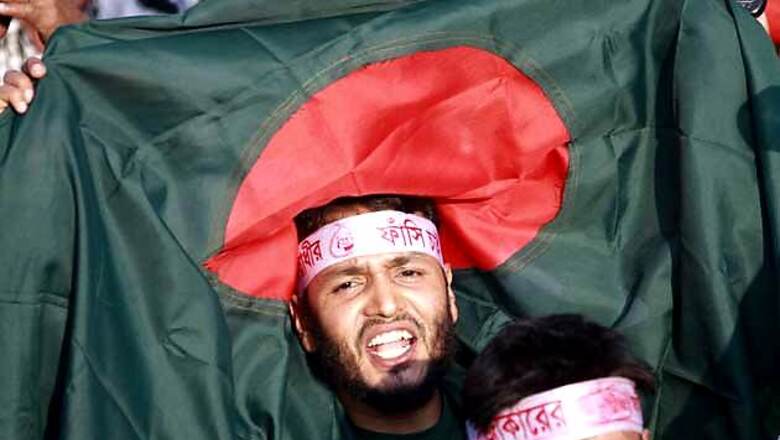
views
Dhaka: Bangladesh remained tense as three people died in clashes during a bandh called by the country's right wing extremist party Jamaat-e-Islami to halt an ongoing trial of their top leaders for 1971 war crimes. The bandh was called in protest against the ongoing trial of the party's extremist leader, Abdul Quader Mollah, who was awarded life sentence. However, the government gave a nod to push for tougher sentences, which are being demanded by the protesters opposing Jamaat-e-Islami.
The strike called by the JI received a lukewarm response as its crucial ally and main opposition Bangladesh Nationalist Party (BNP) declined to extend its support for the bandh, unlike previous occasions. Witnesses said JI activists adopted a hit and run tactic in Dhaka and several other cities amid a clarion call by hundreds of young protesters at Shahbagh Square here to defy the strike.
The Shabagh protesters have been mounting pressure on BNP to severe links with JI. One pedestrian was killed when a minibus overturned as it was chased by JI activists, who also damaged four buses in the capital.
The transport operators defied the JI's strike call expressing solidarity with demands for trial of "crimes against humanity" during the 1971 War against Pakistan. Another death was reported from central Comilla district where JI activists clashed with police. Witnesses said one person died with bullet injuries after JI protesters went on rampage on the street prompting the police intervention.
The third death was reported from southeastern Cox's Bazar, a stronghold of Jamaat. The victim was a patient who died when JI activists attacked his ambulance.
Many schools in Dhaka were open though with thin student presence while businesses and major shopping centers remained open as the main shop owners association at a press briefing on Monday said they planned to ignore the call by JI, which was opposed to Bangladesh's 1971 independence from Pakistan.
Meanwhile, the Shahbagh protest that began on February 5 rolled into its 14th day. The protesters have been demonstrating in demand of capital punishment to the war criminals.
People burst into protests when a verdict delivered by a war crimes tribunal sentenced Jamaat leader Abdul Quader Mollah to life in prison. The protesters feel Mollah was handed down "a lenient sentence" and that he should be awarded the death penalty.
Bangladesh Parliament subsequently amended the war crimes law to allow the prosecution to try and punish any organisations, including the JI, a significant move that could pave the way for banning the country's largest Islamic party. Meanwhile, Dhaka witnessed an intensified security vigil with paramilitary Border Guards and elite anti-crime Rapid Action Battalion that draws members from military, police and other forces, joining police in patrolling streets.
The post-independence Awami League government banned JI soon after Bangladesh's emergence. But the party resurfaced after the subsequent military regime allowed its return to politics following the August 15, 1975 coup toppling the post independence government and killing Bangladesh's founding father Bangabandhu Sheikh Mujibur Rahman.
(With Additional Inputs From PTI)


















Comments
0 comment